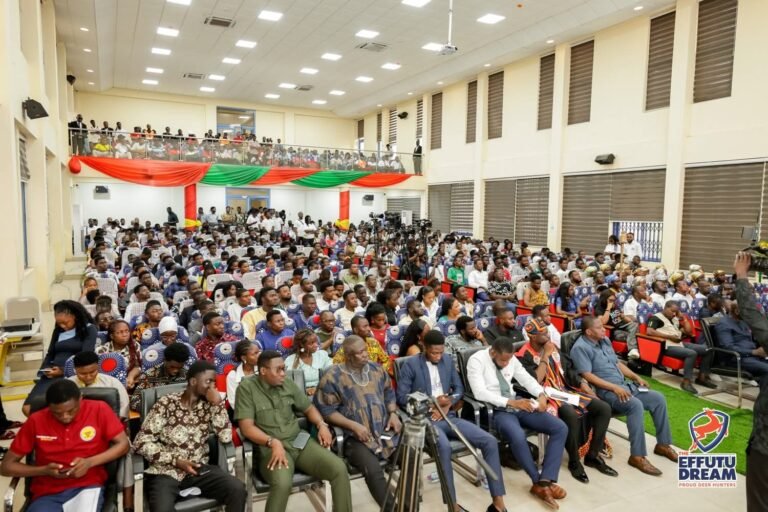
Kojo Oppong Nkrumah, Information Minister

The Minister of Information, Kojo Oppong Nkrumah, has asked the Minority in Parliament to put partisanship aside, and support the passage of outstanding revenue bills, namely the Income Tax (Amendment) Bill, Excise Duty and Excise Tax Stamp (Amendment) Bills and the Growth and Sustainability Levy Bill.
According to him, the passage of the bills will advance the International Monetary Fund (IMF) Executive Board’s approval of the $3 billion programme for the country, which will in turn ease Ghana’s current economic difficulties.
He said with the positive news of creditors expressing willingness to assist Ghana with financing assurances to secure the IMF bailout targeted at balance of payment support, there is the urgent need for the bills to be passed.
At a briefing with the Parliamentary Press Corp, Mr Oppong Nkrumah said with the commitments made by external creditors, it behoves Parliament to show good faith by passing the revenue bills in the supreme interest of the country.
He stressed that failure to pass the bills, which will generate GH₵4 billion annually for the state, will amount to holding all the efforts made to save the economy hostage, which can derail the progress made so far.
BoG assessment
The Monetary policy Committee of the Bank of Ghana (BoG) made a similar call during its assessment of the economy, stating that the august House must prioritise the passing of the bills.
The international and domestic bond markets are shut for the financing of the government’s programmes, forcing the government to rely on Treasury Bills and concessional loans as the primary sources of financing for the 2023 fiscal year.
As part of the prior actions in the IMF Staff Level Agreement, the BoG and the Ministry of Finance have finalised a Memorandum of Understanding (MoU) on zero financing to the budget, which will be signed soon.
Benefits
The Minister explained that the Income Tax (Amendment) Bill, 2022 is to amend the Income Tax Act, 2015 (Act 896) to revise the rates of income tax for individuals, and introduce an additional income tax bracket.
He said it would introduce a withholding tax rate on the realisation of assets and liabilities and on winnings from lottery, unify the loss carried forward provisions and revise the treatment of foreign exchange losses.
The Bill will also increase the optional rate for individuals on the gain from the realisation of an investment asset, revise the upper limits for the quantification of motor vehicle benefits and increase the concessional income tax rates.These amendments are considered necessary to support the growing economy, and will lead to a revenue yield of approximately GH₵1.290 billion.
For the Excise Duty (Amendment) Bill, 2022 it is to amend the Excise Duty Act, 2014 (Act 878) to revise the excise tax rates for cigarettes and other tobacco products to conform with the Economic Community of West African States (ECOWAS) Protocols, and raise revenue to mitigate the harmful effects of these excisable products.
The Bill will increase the excise duty in respect of wine, malt drinks and spirits, and impose excise duty on sweetened beverages and electronic cigarettes and electronic liquids to increase revenue. The passage of the Bill will yield approximately GH₵450 million.
What the Growth and Sustainability Levy seeks to achieve is to impose a special levy to be known as the Growth and Sustainability Levy to raise revenue for the growth and fiscal sustainability of the economy.
The introduction of the Growth and Sustainability Levy is part of the government’s efforts to raise funds for carrying out these interventions.
The levy is to be imposed on profit before tax of the companies and institutions and on• production in the case of mining, upstream oil and gas companies specified in the first column of the Schedule.The estimated revenue for 2023 is approximately GH₵2.216 billion. The levy is subject to review by the Minister responsible for Finance in 2025.




